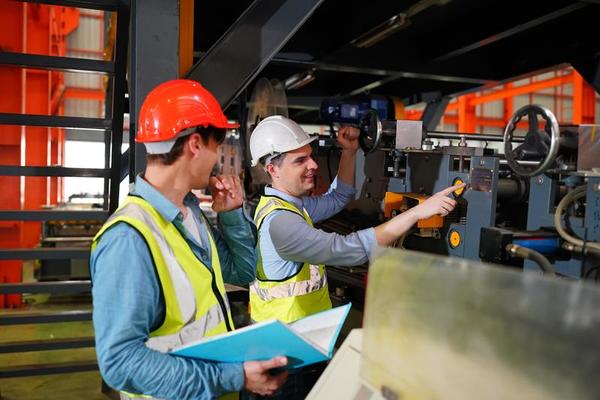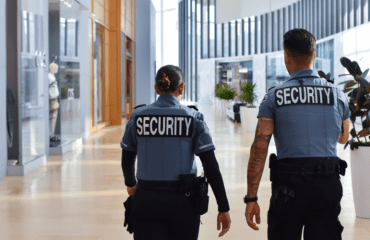It is a critical concern for any business involved in manufacturing, energy production, construction, or any other industry that deals with large-scale operations. Protecting assets, ensuring the safety of personnel, and complying with regulations are top priorities. One effective way to achieve these goals is through security audits. These audits help identify vulnerabilities, assess compliance with security standards, and develop strategies to mitigate risks. In this blog, we will explore the importance of security audits, their key components, and how they contribute to ensuring compliance and safety.
Alpine Protection Services
Alpine Protection Services is dedicated to providing customized security services that address the unique needs of each client. With a focus on inclusive security strategies, Alpine Protection Services offers a range of tailored options, including on-site security personnel, advanced surveillance systems, and specialized risk management. Their approach ensures that every aspect of your security needs is met with precision, from protecting industrial facilities to safeguarding residential properties. By combining experienced security professionals with cutting-edge technology, Alpine Protection Services delivers robust protection that enhances safety and peace of mind for businesses and homeowners alike.
What Are Industrial Security Audits?
Security audits are systematic evaluations of a facility’s security measures, procedures, and systems. The primary objective of these audits is to assess the effectiveness of the security protocols in place, identify potential risks, and ensure that the facility complies with industry regulations and standards. Industrial security audits are conducted by trained professionals who analyze every aspect of the facility’s security, from physical barriers to cybersecurity measures. These audits are essential for maintaining a safe and secure environment in industrial settings. They provide an inclusive overview of the facility’s security posture and help management make informed decisions about necessary improvements.
Why Are Security Audits Important?
Security audits are crucial for several reasons. First and foremost, they help identify vulnerabilities that could be exploited by malicious actors. In today’s world, industrial facilities are often targets for theft, vandalism, and even cyberattacks. By conducting regular audits, businesses can stay ahead of these threats and implement measures to protect their assets. Secondly, Security audits ensure compliance with industry regulations and standards. Many industries, such as energy and manufacturing, are subject to strict security regulations. Failure to comply with these regulations can result in hefty fines, legal consequences, and damage to the company’s reputation.
Importance of Regular Industrial Security Audits
Conducting regular security audits is crucial for maintaining a secure and compliant facility. These audits are not just a one-time activity but an ongoing process that helps identify emerging risks and evolving threats. By scheduling audits at regular intervals, businesses can stay ahead of potential security issues and ensure that all protective measures are up-to-date. Regular audits also reinforce a culture of security awareness among employees, making them more vigilant and proactive in safeguarding the facility.
Tailoring Security Audits to Industry Needs
Every industry has unique security requirements, and industrial security audits should be tailored to address these specific needs. For example, a manufacturing plant may require a stronger focus on physical security, while an energy facility might need an inclusive review of both physical and cybersecurity measures. Customizing audits to the industry’s specific risks and regulatory requirements ensures that the audit findings are relevant and actionable, providing the business with clear guidance on improving security.
The Role of Employee Training in Security
Employee training is a critical component of any security program, and it plays a significant role in the success of security audits. During an audit, the effectiveness of employee training programs is evaluated to ensure that all personnel are knowledgeable about security protocols and procedures. Well-trained employees are the first line of defense against security breaches, and their ability to respond quickly and appropriately to threats can make a significant difference in the facility’s overall security posture. Continuous training ensures that employees remain informed about the latest security practices and technologies.
Addressing Audit Findings
The true value of an security audit lies in the actions taken after the audit is completed. Addressing the findings and implementing recommended security improvements is essential for mitigating identified risks and enhancing the facility’s overall security. This might involve upgrading physical security systems, enhancing cybersecurity measures, or revising access control policies. By taking prompt and decisive action based on the audit’s recommendations, businesses can significantly reduce vulnerabilities and create a safer, more secure environment for their operations.
Leveraging Technology for Enhanced Security Audit Efficiency
Incorporating advanced technology into industrial security audits can significantly enhance their efficiency and effectiveness. Modern tools such as automated security management software, real-time monitoring systems, and data analytics platforms enable auditors to conduct thorough assessments with greater precision and speed. These technologies facilitate the identification of vulnerabilities and potential threats by analyzing vast amounts of data and providing actionable insights. By leveraging technology, businesses can streamline the audit process, ensure inclusive coverage of security measures, and quickly address any issues that arise, ultimately leading to a more robust and resilient security posture.
Conclusion
Industrial security audits are essential for ensuring compliance and safety in industrial facilities. By systematically evaluating security measures, procedures, and systems, these audits help identify vulnerabilities, ensure compliance with regulations, and improve the overall safety of the facility. As technology continues to evolve, the future of security audits is likely to be shaped by trends such as increased automation, integration of physical and cybersecurity, and a greater focus on risk management. By staying ahead of these trends and conducting regular audits, businesses can protect their assets, ensure the safety of their personnel, and maintain a secure and compliant industrial environment.



